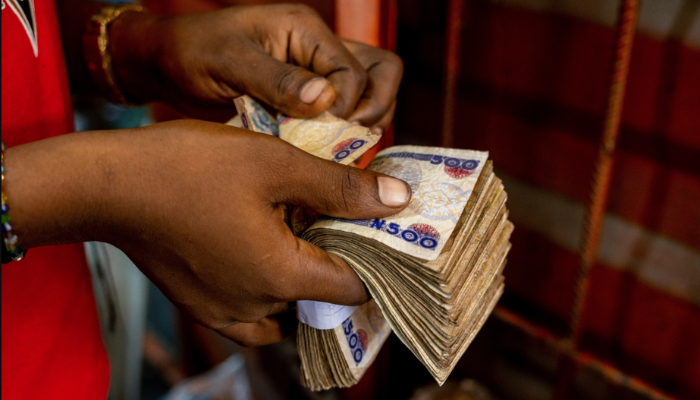Despite a notable decline in global crude oil prices and recent gains recorded by the naira, petrol prices across Nigeria have remained stubbornly high, fueling public frustration and renewed debate over transparency in the downstream petroleum sector. Industry analysts say the persistence of high pump prices suggests deeper inefficiencies in the supply chain, weak domestic refining capacity, and structural market constraints.
Over the past few weeks, Brent crude prices have dropped to around $72 per barrel from nearly $90 earlier in the quarter, while the naira has shown modest appreciation against the dollar, trading below ₦1,400/$ on the official market. In theory, these two factors should have led to a reduction in petrol landing costs and, consequently, lower retail prices. However, motorists across the country continue to buy fuel at an average of ₦620 to ₦670 per litre, depending on location.

Independent Petroleum Marketers Association of Nigeria (IPMAN) officials have attributed the price stagnation to supply bottlenecks and logistical challenges that have raised operational costs for importers and retailers. IPMAN spokesperson, Mr. Chinedu Ukadike, explained that while crude prices and forex rates influence the international component of pricing, other domestic variables — including port charges, transportation, and storage — play significant roles in determining final pump prices.
“The landing cost of petrol may have come down slightly due to cheaper crude and a stronger naira, but the internal costs of handling, distribution, and taxes remain high. These local factors are keeping prices elevated,” Ukadike said.
He also pointed out that the lingering delay in achieving full local refining through the Dangote Refinery and other modular plants means Nigeria still relies heavily on imported refined products, exposing the market to global volatility.
Oil sector analysts, however, argue that the persistent high prices highlight gaps in the deregulated market system introduced after fuel subsidy removal in mid-2023. According to energy economist, Dr. Bala Zakka, the deregulation policy was designed to make prices reflect market realities, but insufficient competition and weak regulatory oversight have allowed inefficiencies to persist.
“In a fully deregulated environment, prices should respond quickly to market shifts, both upwards and downwards,” Zakka noted. “The fact that petrol prices remain high despite cheaper crude and a stronger naira indicates that something is wrong in the value chain — either in pricing transparency or in market control.”
Zakka added that many marketers might still be selling from high-cost inventory procured when crude and exchange rates were higher, which could delay the reflection of recent cost reductions in retail prices.
Similarly, the Major Energies Marketers Association of Nigeria (MEMAN) said the lag between crude price changes and retail pump adjustments could last several weeks due to shipment and importation cycles. MEMAN Executive Secretary, Mr. Clement Isong, clarified that new shipments procured under lower crude prices are yet to arrive, and it would take time before consumers feel the impact.
“The supply chain operates in cycles of about four to six weeks. What we are seeing now is still a reflection of previous costs, not current market trends. Prices may begin to ease when new cargoes arrive under the latest market conditions,” Isong explained.
Nonetheless, the sustained high prices continue to exert pressure on households and businesses already grappling with inflation and rising living costs. Transport fares have remained elevated, while small-scale enterprises dependent on fuel for power generation face shrinking profit margins.
Consumer advocacy groups have called on the Federal Government and the Nigerian Midstream and Downstream Petroleum Regulatory Authority (NMDPRA) to ensure greater transparency in pricing mechanisms and to publish regular breakdowns of petrol cost components.
“The government must show Nigerians how petrol prices are being calculated under this deregulated regime. If global oil prices fall and the naira strengthens, we should see some relief at the pumps,” said Comrade Tunde Adebayo, a member of the National Consumer Protection Council.
Meanwhile, expectations are high that the gradual ramp-up of production at the Dangote Refinery could eventually ease import dependence and stabilize fuel prices. The refinery, which recently began refining operations, is projected to produce up to 650,000 barrels per day when fully operational. Industry observers believe that once local refining reaches commercial capacity, Nigerians could benefit from more stable and possibly cheaper fuel prices.
However, experts caution that unless distribution inefficiencies, port congestion, and multiple taxation issues are addressed, domestic pump prices may remain insulated from global cost declines.
“The real solution lies in fixing structural bottlenecks — improving storage facilities, logistics, and ensuring competitive market practices,” Zakka stressed.
As Nigerians await meaningful relief, the persistence of high petrol prices despite favorable macroeconomic indicators underscores the complexity of the country’s downstream petroleum dynamics — where external gains often fail to translate into local benefits.
Support InfoStride News' Credible Journalism: Only credible journalism can guarantee a fair, accountable and transparent society, including democracy and government. It involves a lot of efforts and money. We need your support. Click here to Donate
